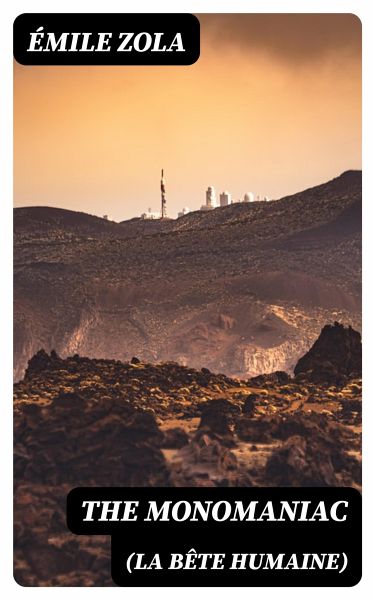
The Monomaniac (La bête humaine) (eBook, ePUB)
Versandkostenfrei!
Sofort per Download lieferbar
0,49 €
inkl. MwSt.
Weitere Ausgaben:

PAYBACK Punkte
0 °P sammeln!
Émile Zola's "The Monomaniac" (originally titled "La bête humaine") delves into the psyche of its characters, particularly focusing on the intersection of madness and obsession within the societal landscape of 19th-century France. Zola employs his hallmark naturalistic style, vividly portraying the grim realities of industrial life and the moral dilemmas faced by his protagonists. Through masterful characterization, the novel intricately examines themes of violence, the duality of human nature, and the inherited psychological disorders that afflict individuals, making it a compelling critiqu...
Émile Zola's "The Monomaniac" (originally titled "La bête humaine") delves into the psyche of its characters, particularly focusing on the intersection of madness and obsession within the societal landscape of 19th-century France. Zola employs his hallmark naturalistic style, vividly portraying the grim realities of industrial life and the moral dilemmas faced by his protagonists. Through masterful characterization, the novel intricately examines themes of violence, the duality of human nature, and the inherited psychological disorders that afflict individuals, making it a compelling critique of mechanized society's impact on human emotions and relations. Zola, a leading figure in the naturalism movement, was profoundly interested in societal issues, which ultimately shaped his writing. Influenced by the scientific discourse of his day, including the works of Darwin and his own observations of social conditions, he sought to reveal the underlying truths about human behavior and its motivations. This personal and sociopolitical milieu propelled him to depict the harrowing experiences of his characters and the society that molds them. I highly recommend "The Monomaniac" to readers interested in psychological depth and historical context, as well as those who appreciate literature that questions moral and ethical boundaries. Zola's gripping narrative and incisive social commentary create a timeless exploration of the human condition that remains relevant today.
Dieser Download kann aus rechtlichen Gründen nur mit Rechnungsadresse in A, B, BG, CY, CZ, D, DK, EW, E, FIN, F, GR, H, IRL, I, LT, L, LR, M, NL, PL, P, R, S, SLO, SK ausgeliefert werden.












